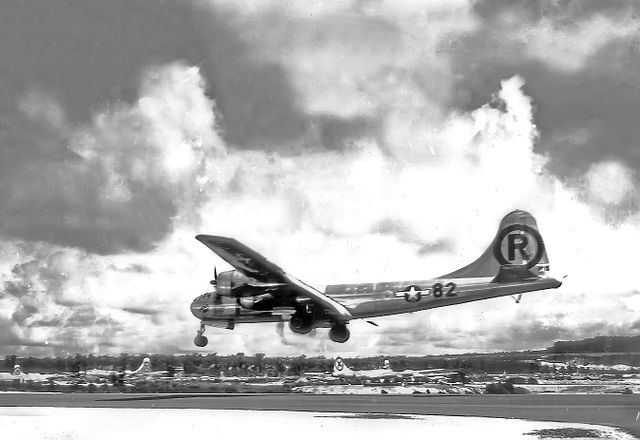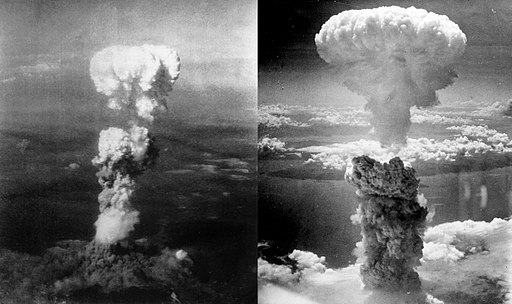English Across the Curriculum
World War II
Hiroshima and Nagasaki - Japan Surrenders
In 1939 German born scientist Albert Einstein informed US president Roosevelt about the possibility of making a super bomb that would cause an explosion that nobody had ever seen before. Large amounts of energy could be released by splitting an atom. Einstein and other scientists were afraid that the Germans could develop such a bomb first. In 1942 the Americans set up the Manhattan Project, a secret program to make such a bomb. The first atomic bomb was tested in the New Mexican desert in July 1945.
Even though the United States was winning the war against Japan some generals thought that they would have to invade the island nation to defeat the Japanese. Experts thought that hundreds of thousands of American soldiers might die in such an attack.
After the death of Franklin D. Roosevelt, Harry Truman became president. He learned about the successful test of the bomb. In July 1945 Truman warned the Japanese that the United States would destroy the country with a powerful bomb if they did not surrender at once. In spite of the warning Japan continued fighting.
On August 6,1945 an American bomber, the Enola Gay, dropped the first atomic bomb on the Japanese city of Hiroshima. The explosion killed 70,000 to 100,000 people and destroyed about 13 square kilometres of land. Three days later a much larger bomb was dropped on Nagasaki. It killed about 40,000 people. Thousands of people died of injuries and radiation in the years that followed. On August 14, the Japanese government agreed to surrender. Many officers committed suicide. On September 2, 1945 World War II officially ended.

The plane that dropped the first atomic bomb - Enola Gay
Image :U.S. Air Force photo,
Public domain, via Wikimedia Commons

Mushroom clouds over Hiroshima and Nagasaki
Image: George R. Caron,
Public domain, via Wikimedia Commons